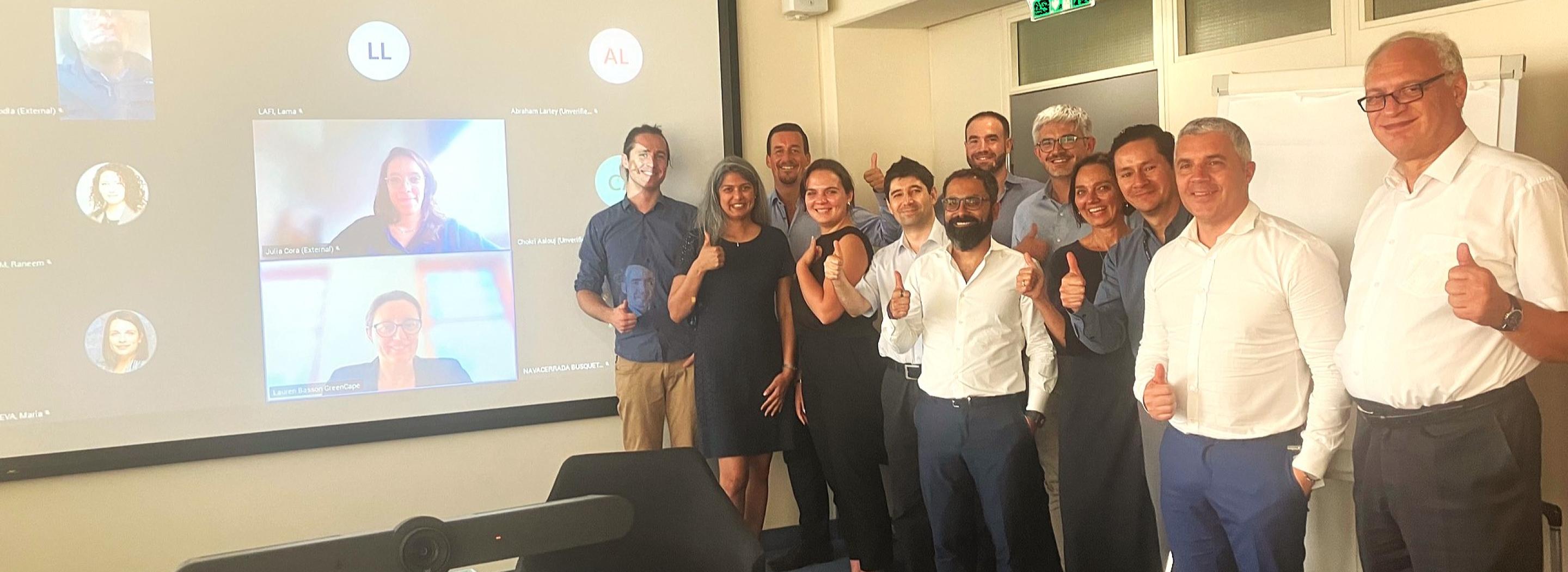Expert Group Meeting on Skills Development for a Just Hydrogen Transition
29 August 2024
Vienna
UNIDO
Hybrid
The global hydrogen economy has the potential to create 20-25 mn jobs by 2050 in hydrogen production and transportation, of which 50% are expected to be created in the emerging markets and developing economies. (Emerging Trade Corridors for hydrogen and its derivatives, Hydrogen Council & McKinsey, 2024)
Background on the Meeting
UNIDO is currently developing a skills gap mapping assessment methodology for assessing human capital gaps through a skills mapping approach tailored for developing countries. This assessment constitutes a comprehensive endeavour aimed at collecting both quantitative and qualitative data concerning the skills within a country's hydrogen value chain.
The methodology's main goal is to identify and address existing gaps to design targeted strategies for skill enhancement and national-level training programs. The methodology is built upon three interrelated pillars: skills, professions, and industrial activities. Test-runs of the methodology has been carried out in Egypt, where an assessment of relevant technical skills and competences imparted through universities and vocational centres was carried out as well as the identification of relevant professions for green hydrogen value chains.
The target groups and potential beneficiaries of the methodology range from the public and private sector, including representatives from industry, academia and the government as well as the society (e.g. associations that promote gender equality and women’s empowerment, or environmental protection) involved in enhancing sustainable productivity growth, and contributing to inclusive and sustainable industrial development globally and especially in developing countries.
The EGM aimed at
- Gathering insights on stakeholder initiatives for developing technical skills in hydrogen.
- Receiving feedback on UNIDO’s skills gap mapping methodology.
- Discussing the next steps for collaborative efforts on capacity building and skills development for the hydrogen transition.
Key Messages of the Meeting
- The hydrogen sector presents enormous opportunities for job creation, but we are not there yet.
- Building the required skills is essential to get the hydrogen industry off the ground. We need to train business case developers in finance, economics, and project management to create a solid foundation for the industry's growth.
- Given the potential risks, safety training to avoid accidents and prevent hydrogen leakages is critical for all stakeholders involved.
- Training policymakers on permitting processes is also crucial. Developing case studies on different permitting models will help streamline regulatory frameworks across regions.
- All training programs must evolve into viable business models for educational providers. Practical skills training, which can be costly, must be made accessible through public-private partnerships (PPPs) and regional training hubs.
- While many general hydrogen-related courses are available online, there is a significant gap in practical and technical training. Hands-on training facilities, including virtual reality systems, are necessary to provide safe, risk-free learning environments.
- Establishing regional hydrogen competence centres will provide both demonstration and training facilities, offering a cost-effective solution for hands-on experience in developing countries.
Potential Areas of Cooperation identified
- Aligning databases of occupational roles, skills, and academic profiles will ensure that the workforce is trained to meet the specific needs of the hydrogen value chain in each country.
- Exploring financing instruments to support robust training programs for hydrogen skills development is essential.
- Developing "train the trainers" courses and setting up networks will accelerate knowledge transfer and ensure a sustainable skills pipeline.

